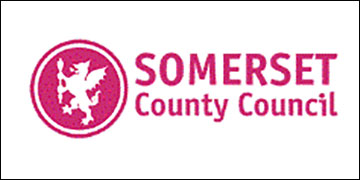Claire Winter, the deputy director of children’s services at Somerset County Council, is quite happy to admit that she is superfluous to requirements for most families who need help.
“My main role, and that of my senior management team, is to make social workers’ jobs as rewarding as they can be. I need to support them so they can enable families and improve children’s lives.”
With that in mind, it made sense to ask social workers what they needed, she says.
“Social workers told us that if there was one thing we could do to help them help families more effectively, it would be better and earlier access to services for the adults and parents in a family – particularly around the issues of domestic abuse, mental health and substance misuse.”
Helping adults earlier can make a real difference for children
Asking children and young people the same question revealed that they wanted their parents to be given more help to look after them so that they could stay at home, like other children, and social workers were no longer needed.
“It makes sense,” Claire says. “After all, no one wants to have a social worker in their life. Social workers want to help families help themselves, so children can thrive in their own family.”
The social work feedback was further backed by internal analysis of Somerset’s safeguarding and court cases. This found that 65-70% of all children lived in a household where parental drug and alcohol misuse, domestic abuse and poor mental health were issues.
“We realised that if we could help these adults earlier then we could support them to make a real difference to the experiences of the children in these families,” Claire points out.
Family safeguarding model
As a result, Somerset has now adopted the family safeguarding model, first developed in Hertfordshire. It integrates domestic abuse, mental health and substance misuse workers into children’s safeguarding teams. In Hertfordshire, the model has seen real success in reducing the numbers of children taken into care, which Somerset hopes to replicate.
Somerset has also gone one step further and added these adult workers into assessment teams as well.
“As the aim is to get help in place as soon as possible for these families, then it felt like we had an opportunity to start the process at the assessment stage.” Claire says.
The specialist adults’ workers have come from voluntary organisations who already provide these services for adults across Somerset and are enthusiastic about being part of children’s social work teams.
Family Drug and Alcohol Court
Family safeguarding is an integral pillar of Somerset’s ‘Family Solutions’ approach, which also includes the introduction of the Family Drug and Alcohol Court (FDAC), an intensive court process where a judge holds fortnightly hearings and sees regular progress reports in those situations where the core issue is parental substance misuse.
“We want to be able to say to all our children in care that we did everything we could to keep them with their family,” Claire says.
If, at the end of proceedings, children do have to live away from their parents on a permanent basis, their birth mothers will be referred to the Pause project. This national programme has been commissioned by Somerset to help these mothers break the cycle of successive children being taken into care. The team helps them learn to make good decisions about their own lives which, in turn, means these women are more likely to be able to care for subsequent children.
Claire adds that the other third of Somerset’s safeguarding cases largely involved chronic neglect, sexual exploitation and parents with learning difficulties who were struggling. She was determined these should not slip off the radar with the introduction of the family safeguarding model.
Managing risk
“We know dealing with neglect is a real issue across the UK and the research tells us that we often intervene far too late. So, we will have other safeguarding teams who will take on those cases and they will develop specialist skills in those areas,” she says.
The changes are part of Somerset’s continuing journey from ‘inadequate’ in 2015 to ‘requires improvement’ in 2017 and a drive to ‘good’. This has allowed Somerset to move from compliance to a mature approach to managing risk and supporting families, Claire says.
“We need social workers who really want to get it right for children and don’t shy away from managing risk while they work through difficult situations. Sometimes you really have to hold your nerve, particularly in those cases with older teenagers where the parents are just fed up. It is important to use the energy of the crisis to help make the changes.
“Social workers should be confident enough to be curious, ask difficult questions and not be judgmental. Be open with families and with each other. Social work is all about balancing risk and making difficult decisions. We all have successes and times when things don’t go so well; we help each other to reflect and learn, to improve our practice and to improve children’s lives.”
Covid-19 challenges
It is this last value that she says has really helped with the challenges of introducing the family safeguarding model in the midst of the coronavirus pandemic.
“There’s not a lot of research on how to build teams virtually but by being open and forgiving with each other we are building the team enthusiastically. We have delayed the start, due to Covid-19, to make sure we are getting it right for our new and existing staff. But I’m sure the new workers will feel part of the teams because I know how keen our social workers are to welcome them into their teams. My job is to make sure there are clear criteria in place and the virtual infrastructure to facilitate it.”
It is a sentiment echoed by Jayne Hardy of the You Trust, the voluntary sector organisation providing specialist domestic abuse workers for the teams.
Jayne, who co-ordinates domestic abuse projects across four counties, says Somerset has been inclusive with all the providers involved and have communicated well.
Challenges facing parents
This bodes well for the ability to handle the inevitable challenges of changing social work models. On top of this, Jayne points out, they are also likely to be dealing with a spike in cases involving not just domestic abuse (DA) but parental mental health and substance misuse as aa result of the pandemic and lockdowns.
“Many victims have been locked up with their perpetrators for a long time and the children will are being exposed to it while they are off school. We are already seeing more families who have never had domestic abuse problems before. Families are under a lot of strain and stress.”
Jayne says the eight DA workers in Somerset will undertake work with parents, including work with perpetrators, but will also offer advice and upskilling to other members of the team.
“I think that’s a real plus to this model because all the workers in the team end up more skilled. The domestic abuse workers end up with a greater awareness of child safeguarding and vice versa.”
Helping each other understand risk
She believes it also helps take the pressure off children’s social workers, who often feel ill-equipped to deal with some of these deep, entrenched and complex parental issues.
Dawn Holmes, a manager with Somerset’s Drug and Alcohol Service (SDAS), delivered by Turning Point, and who currently co-ordinates substance misuse services for young people and families in Somerset, agrees.
“The sad thing is that if children are taken away then it can prevent the parent being willing to make any changes because they start self-medicating as a way of dealing with the situation. With this model, we can try and help the parent but still ensure the children are safe and aren’t being neglected or hurt while we do it. If children can stay with their family, it’s much better for everyone.”
Dawn says another strength of the model is the improved amount of challenge within a team on issues of risk.
“For example, I’m used to people using heroin intravenously and I’m not uncomfortable with that level of risk. But I would be different if someone was delusional, for example. I need a mental health worker to help me understand that risk and how we can hold it to help change happen.”
Thriving not surviving
Dawn believes the combination of the family safeguarding model and the FDAC will improve relationships with parents. “At every stage the family are aware of what’s expected and have an opportunity to tell their story. The final decision should never come as a surprise. It should almost be a mutual agreement.”
Claire says their ultimate metric of success will be whether fewer children are coming into care and are instead able to stay with their family safely.
“To know if this model is successful, the ultimate test will be what families and children say – how does it feel to have these extra people involved? How does it feel to be parented using this model?
“We have a saying here which is: ‘thriving, not surviving’ and that’s ultimately what we want. These children need to be able to thrive at home with their families.”
If you’re interested in working for Somerset’s children’s services check out the jobs currently being advertised. Alternatively, book a place on one of Somerset’s try before you buy days for social workers and occupational therapists.




 Facebook
Facebook X
X LinkedIn
LinkedIn Instagram
Instagram